Thecus N2310 Budget 2-bay NAS Review
by Ganesh T S on July 6, 2014 2:30 PM EST- Posted in
- NAS
- AppliedMicro
- Thecus
Multi-Client Performance - CIFS
Our multi-client evaluation involves accessing a CIFS share on the NAS from up to 25 virtual machines and simultaneously processing the same type of IOMeter workload on them. Our usual routine involves starting with 25 and moving down to 1 VM. Unfortunately, in the case of the N2310, IOMeter ended up hanging before the completion of the first workload. To make things easier to debug, we started the process with 1 VM and increased the concurrent accesses one by one. Around 4 VMs, we started seeing the hangs. Restarting the IOMeter processes helped get past the issue on a few occasions. However, beyond 9 concurrent VMs, we were never able to get the IOMeter workloads to run to completion. Either IOMeter would completely hang (as shown in the first screenshot below), or the maximum response time would become very high (the order of 90 seconds - half the workload duration) and increase the error count reported (second screenshot).
Multi-Client IOMeter Testing on the N2310 - Process Hang
Multi Client IOMeter Testing on the N2310 - Inordinate Response Times / Errors
In the rest of this section, we present data from the evaluation of up to 9 concurrent accesses to a CIFS share on the N2310. Other than the bandwidth and average response times, some of the interesting aspects from our IOMeter benchmarking run can be found here.
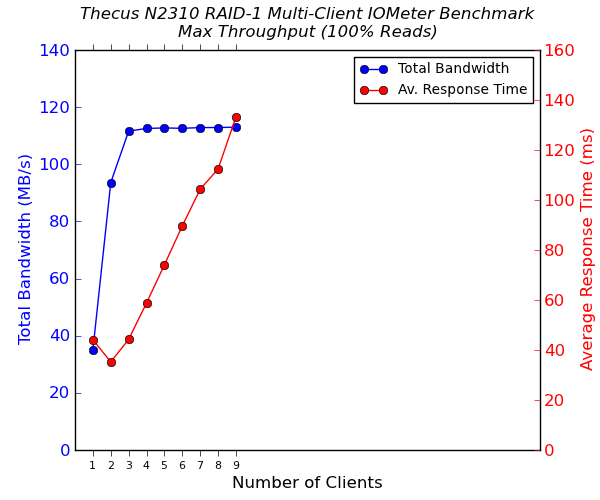
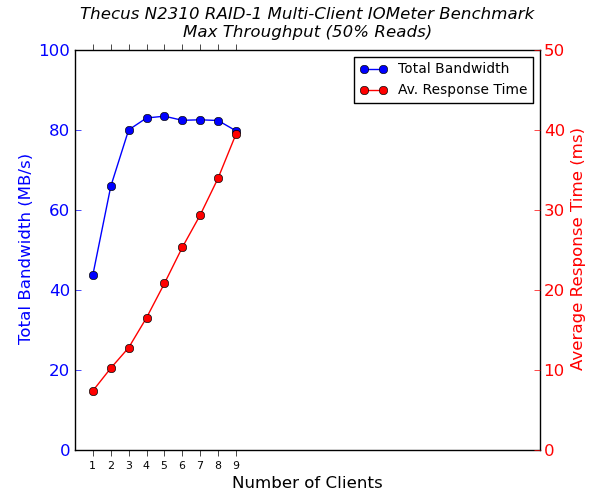
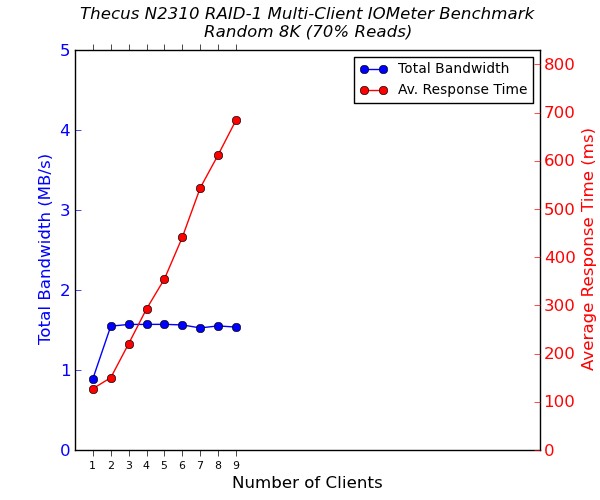
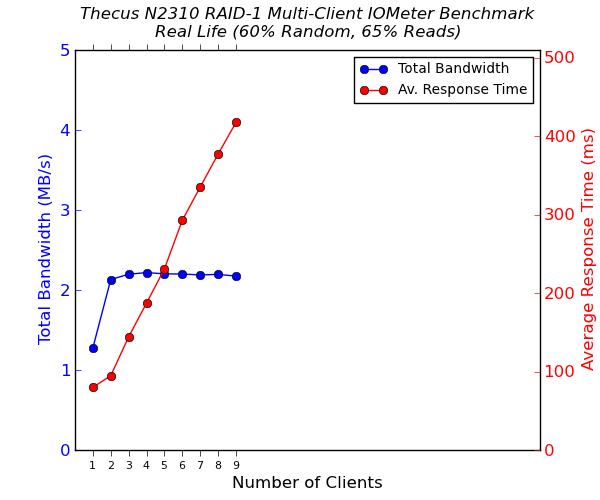
The above graphs show the limited results we were able to gather in our multi-client tests. The drop down boxes provide data from other 2-bay NAS units.


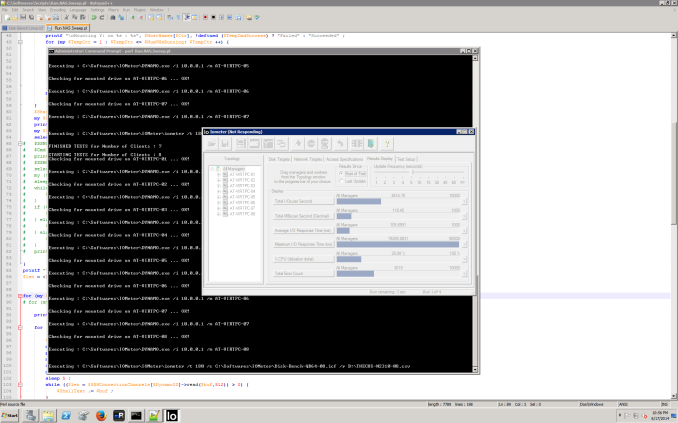
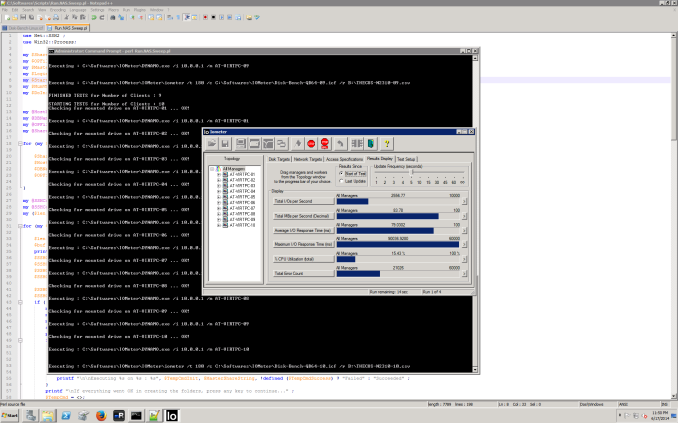








39 Comments
View All Comments
PEJUman - Monday, July 7, 2014 - link
nothing I assume... I simply have more windows licenses than PC nowadays.For me it's familiarity, a USB 3.0 flashdrive can install win 7/8 in about 15 minutes (to login screen and updates). No google-fu required.
tuxRoller - Monday, July 7, 2014 - link
Ah. Well, if you're interested, freenas seems to be what nearly everyone chooses. It's biggest advantage is that it supports zfs, but it also has a really nice web gui management tool.http://www.freenas.org/for-home/
PEJUman - Tuesday, July 8, 2014 - link
been hearing good stuff on both zfs and freenas. although I admit that I haven't looked at it since last year.Thanks for reminding me, reading the link now... :D
tuxRoller - Tuesday, July 8, 2014 - link
NP. Hope it's helpful!PEJUman - Monday, July 7, 2014 - link
yeap! I understand where you're coming from.Disk WILL fail. just a matter of when. I went full circle on this, single disk, RAID 0, 1, 5, JBOD, flexraid, shitty space (also know as storage space).
Now I am on a RAID 0 hard disks with SSD caching on storage, SSD with RAM caching of network attached scratch/landing drive. Both backed with once every 48 hrs hot storage.
I finally learn that my storage need will continue to evolve and currently nothing beats 6-8 SATA/USB 3.0 flexibility for expansion, recovery, rebuilds, helping a friend with a drive clone, etc.
vol7ron - Tuesday, July 8, 2014 - link
What's the difference in power consumption?basroil - Tuesday, July 8, 2014 - link
Any hope for iSCSI tests? More often than not these devices are used by people who ran out of space on their desktop rather than need file sharing.ganeshts - Tuesday, July 8, 2014 - link
Already mentioned in the review that the unit doesn't support iSCSI or encryption (given target market).We do iSCSI evaluation for all NAS units that we review (provided it is supported by the vendor)
Fallout552 - Friday, July 11, 2014 - link
Might be a dumb question here, but could someone explain the the testing methodology for NAS when the listings state 2x HD Stream and 1x HD Stream? I assume it's more than one device streaming simultaneously, but the more streams seem to increase the throughput?NAS newbie here.
Thanks.